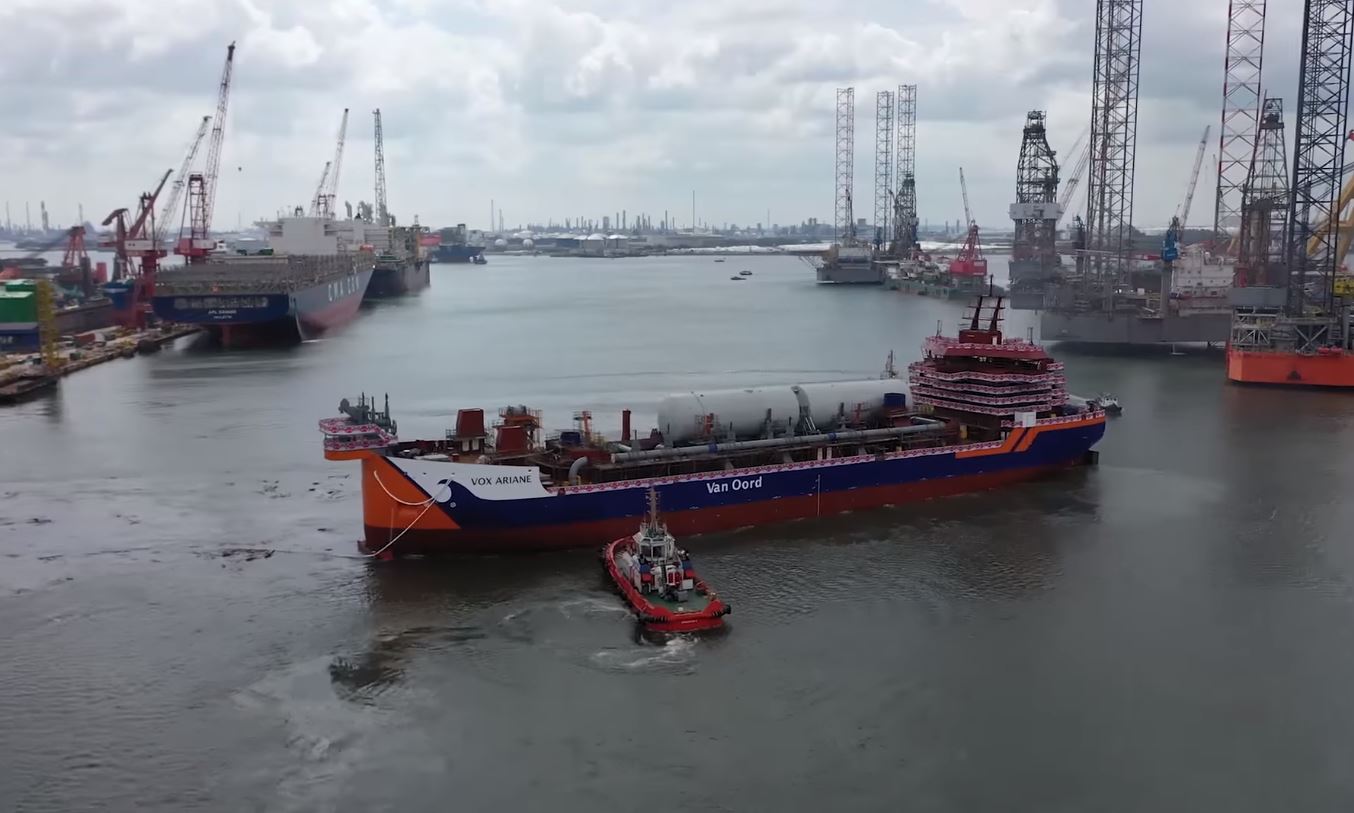Singapore-based shipbuilder, Keppel Offshore & Marine (O&M), achieved a significant feat by delivering Van Oord’s pioneering LNG-powered trailing suction hopper dredger (TSHD). This landmark addition to Van Oord’s fleet marks a pivotal shift towards eco-friendly maritime solutions.
Named Vox Ariane, this cutting-edge dredger boasts a substantial hopper capacity of 10,500 cubic meters and is powered by dual-fuel engines, enabling seamless operation with LNG. Crafted with meticulous attention to detail, Vox Ariane represents the culmination of Keppel O&M’s expertise in shipbuilding and sustainable technology.
In addition to Vox Ariane, Keppel O&M is currently engaged in the construction of two identical dredgers, Vox Apolonia and Vox Alexia, further solidifying its commitment to delivering innovative and environmentally conscious vessels.
Tan Leong Peng, Managing Director at Keppel O&M, highlighted the significance of this achievement, emphasizing the company’s dedication to advancing clean energy solutions in the maritime industry. Leveraging its expertise in LNG technology and engineering, Keppel O&M continues to lead the way in providing energy-efficient and low-carbon solutions for vessel construction.
Vox Ariane is designed in compliance with the International Maritime Organisation’s (IMO) Tier III regulations and incorporates various fuel-saving features to minimize carbon emissions. Accredited with the green passport and clean ship notation by Bureau Veritas, this Dutch-flagged dredger exemplifies Van Oord’s commitment to sustainability.
Jaap de Jong, representing Van Oord, expressed enthusiasm for the arrival of Vox Ariane, underscoring its role in enhancing fleet efficiency and promoting energy conservation. Equipped with advanced automation and integrated control systems, Vox Ariane sets a new standard for modern dredging operations.
With a single suction pipe, two shore discharge dredge pumps, and a total installed power of 14,500 kilowatts, Vox Ariane represents a significant advancement in dredging technology. Its introduction marks a transformative moment in the maritime industry, signaling a shift towards cleaner and more sustainable practices.
